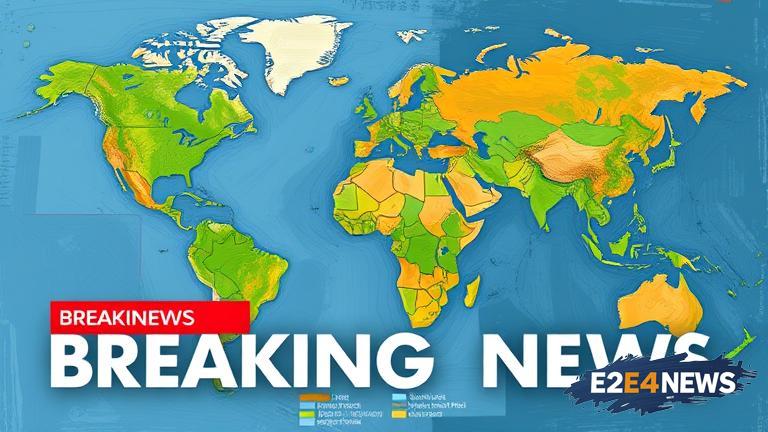A recent study published by the BBC highlights the devastating effects of climate change on global food systems. The report reveals that rising temperatures, changing precipitation patterns, and increased frequency of extreme weather events are altering the availability and quality of food crops. This, in turn, is affecting the livelihoods of farmers, the economy, and ultimately, food security. The consequences of climate change on agriculture are far-reaching, with impacts on crop yields, water scarcity, and soil degradation. As the global population continues to grow, the pressure on food systems will only intensify. The report emphasizes the need for urgent action to mitigate the effects of climate change and ensure a sustainable food future. One of the primary concerns is the impact of climate change on staple crops such as wheat, maize, and soybeans. Rising temperatures are altering the growing seasons, leading to reduced yields and lower quality crops. Furthermore, changing precipitation patterns are affecting the distribution and intensity of rainfall, resulting in droughts and floods that can devastate crops. The report also highlights the vulnerability of small-scale farmers, who are often the most affected by climate-related shocks. These farmers, who produce a significant portion of the world’s food, are struggling to adapt to the changing climate conditions. The consequences of climate change on food systems are not limited to agriculture; they also have significant implications for human health. Climate-related shocks can lead to food price volatility, making it difficult for people to access nutritious food. This, in turn, can exacerbate malnutrition, particularly among vulnerable populations such as children and the elderly. The report emphasizes the need for climate-resilient agriculture, which involves the use of innovative technologies and practices to improve crop yields and reduce the environmental impact of farming. This can include the use of drought-tolerant crop varieties, conservation agriculture, and agroforestry. Additionally, the report highlights the importance of supporting small-scale farmers, who are critical to ensuring global food security. This can involve providing them with access to climate information, credit, and other resources to help them adapt to the changing climate conditions. The report also emphasizes the need for international cooperation to address the global challenges posed by climate change. This can involve sharing knowledge, technologies, and best practices to support the development of climate-resilient food systems. In conclusion, the report provides a stark warning about the impacts of climate change on global food systems. It emphasizes the need for urgent action to mitigate the effects of climate change and ensure a sustainable food future. The consequences of inaction will be severe, with significant implications for food security, human health, and the economy. Therefore, it is essential that governments, international organizations, and civil society work together to address the challenges posed by climate change and ensure a food-secure future for all. The report’s findings are based on a comprehensive analysis of data from around the world, including Africa, Asia, Latin America, and the Caribbean. The data reveals that climate change is affecting food systems in diverse ways, from changing precipitation patterns to increasing the frequency of extreme weather events. The report’s authors emphasize that the impacts of climate change on food systems will only intensify in the coming years, making it essential to take action now to mitigate these effects. The report’s recommendations include the development of climate-resilient agriculture, support for small-scale farmers, and international cooperation to address the global challenges posed by climate change. Overall, the report provides a compelling case for urgent action to address the impacts of climate change on global food systems.
